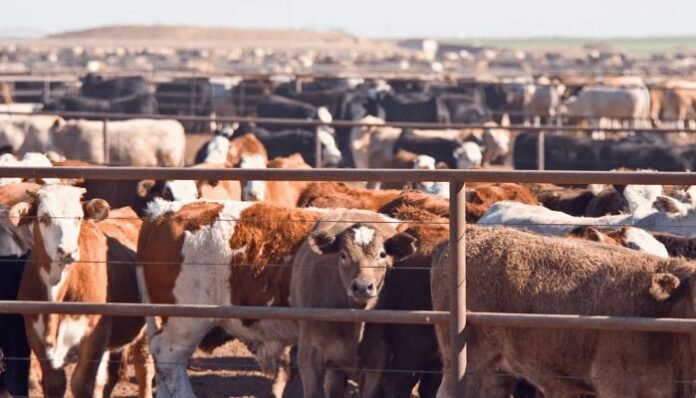The Federal Government has unveiled the National Livestock Master Plan (N-LMP), a five-year roadmap to revive Nigeria’s troubled livestock sector and attract fresh investment.
The plan was developed by the Livestock Productivity and Resilience Support Project (L-PRES), working with the International Livestock Research Institute (ILRI), Nairobi, and the Bill and Melinda Gates Foundation.
It was officially presented in Abuja by L-PRES National Coordinator, Sanusi Abubakar, to the Minister of Livestock Development, Idi Maiha.
“The livestock sector contributes about 17% to agricultural GDP and 5% to national GDP,” Maiha said. “Millions of Nigerians depend on it for livelihoods, and it remains key to our protein needs.”
Tackling Old Challenges with New Strategy
The minister admitted that “low productivity, disease outbreaks, inadequate infrastructure and limited access to markets have long hampered growth.”
He described the N-LMP as “a comprehensive five-year investment plan designed to address these challenges and guide the development of a sustainable livestock sector.”
The plan will prioritise key commodities and value chains, explore new technologies, and provide foresight analysis on livestock investments. It also targets job creation, poverty alleviation, gender inclusion and environmental sustainability.
Maiha pointed to Tanzania, which adopted a similar livestock plan in 2018 with ILRI support, attracting $624 million in research investment and driving private sector participation.
“The N-LMP will enable Nigeria to implement the Livestock Development Strategy for Africa and contribute to the Malabo Declaration and SDGs,” he said. “It is a commitment to a future where Nigeria’s livestock sector is thriving, innovative and a major driver of national prosperity.”
Private Sector at the Centre
Abubakar said the N-LMP covered the full value chain — from feed to species — with roles clearly defined for federal and state governments, development partners, and the private sector.
He stressed that “the private sector remains a key player in driving investment and unlocking the potential of the industry for food security, job creation, poverty reduction and social cohesion.”
Sirak Batha, Senior Agricultural Economist at ILRI, added that the plan rests on four pillars: systemic assessment of constraints, a medium-term development strategy, a short-term commodity-focused investment plan, and a coalition of public and private stakeholders co-creating change.
Rate, Like 👍, Comment💬, share this article, Follow us on our social media handles, and Submit your own story to get featured and earn rewards!







